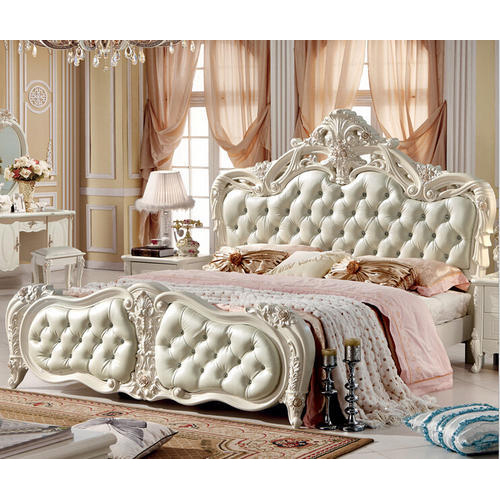In the ever-evolving landscape of modern design, the bed, a quintessential piece of furniture, has undergone remarkable transformations. From its humble beginnings as a simple sleeping platform to today’s innovative designs, beds have evolved into statements of style, comfort, and functionality. Contemporary classics in bed innovation seamlessly blend aesthetic appeal with cutting-edge technology, creating timeless pieces that enhance both the sleeping experience and the overall ambiance of the bedroom. One prominent trend in modern bed innovation is the fusion of sleek aesthetics with ergonomic design. Beds crafted from materials like polished metal, natural wood, or luxurious upholstery exude elegance while prioritizing comfort and support. The minimalist approach to design, characterized by clean lines and uncluttered silhouettes, creates a sense of serenity conducive to restful sleep. Additionally, ergonomic features such as adjustable headrests, lumbar support, and customizable mattress firmness cater to individual preferences, ensuring a personalized sleeping experience. Technological advancements have revolutionized the way we interact with our beds, giving rise to smart beds that seamlessly integrate with our daily lives.

These beds are equipped with state-of-the-art features such as built-in speakers, wireless charging pads, and adjustable lighting systems, transforming the bedroom into a multifunctional sanctuary. Integration with smart home systems allows users to control various bed functions remotely, enhancing convenience and accessibility. Furthermore, advanced sleep tracking technology monitors sleep patterns and provides valuable insights for optimizing sleep quality, making smart beds invaluable tools for promoting overall well-being. Another notable innovation in modern bed design is the incorporation of sustainable materials and eco-friendly manufacturing practices. As environmental consciousness continues to shape consumer preferences, designers are increasingly turning to sustainable alternatives such as bamboo, reclaimed wood, and organic fabrics. These materials not only reduce the ecological footprint of bed production but also contribute to a healthier indoor environment by minimizing exposure to harmful chemicals. Moreover, eco-friendly design principles extend beyond material choice to encompass energy-efficient manufacturing processes and recyclable packaging, reflecting a commitment to environmental stewardship.
Modularity and versatility have become defining characteristics of contemporary bed designs, offering flexibility to adapt to changing needs and lifestyles. Modular beds feature interchangeable components that can be rearranged or expanded to accommodate evolving preferences or spatial constraints. This adaptability is particularly beneficial in urban environments where living spaces are often limited, allowing users to maximize functionality without compromising on style. Furthermore, Robuust beds with built-in storage solutions or convertible mechanisms optimize space utilization, making them ideal for small apartments or guest rooms. Innovative approaches to traditional craftsmanship have revitalized classic bed designs, infusing them with a modern sensibility while preserving their timeless appeal. Artisans combine age-old techniques with contemporary materials to create bespoke beds that are as striking as they are durable. Handcrafted details such as intricate carvings, artisanal finishes, and hand-stitched upholstery add a touch of luxury and authenticity to each piece, elevating the bedroom into a sanctuary of refined elegance. Contemporary classics in bed innovation exemplify the marriage of form and function, blending timeless design principles with modern technological advancements.
